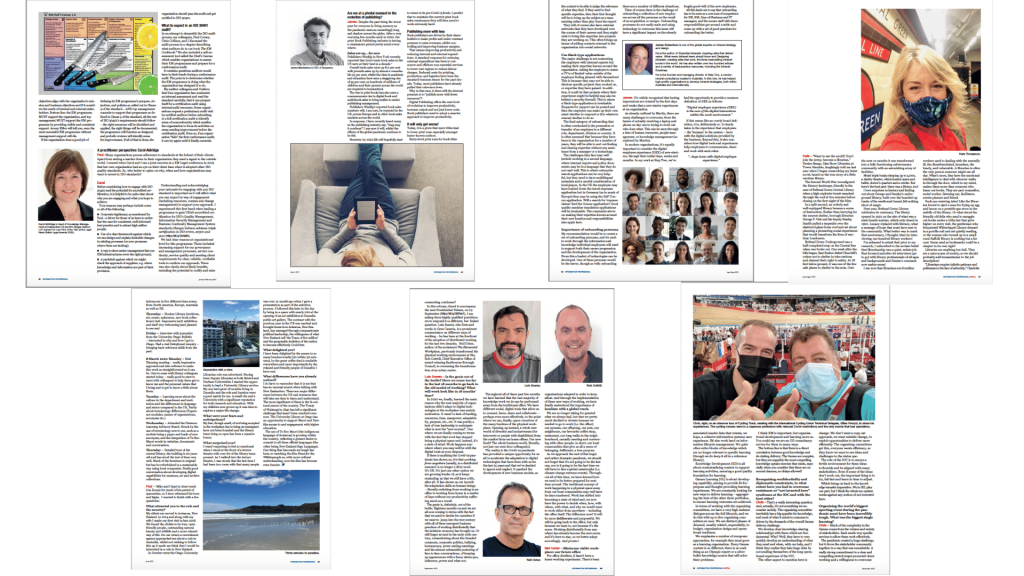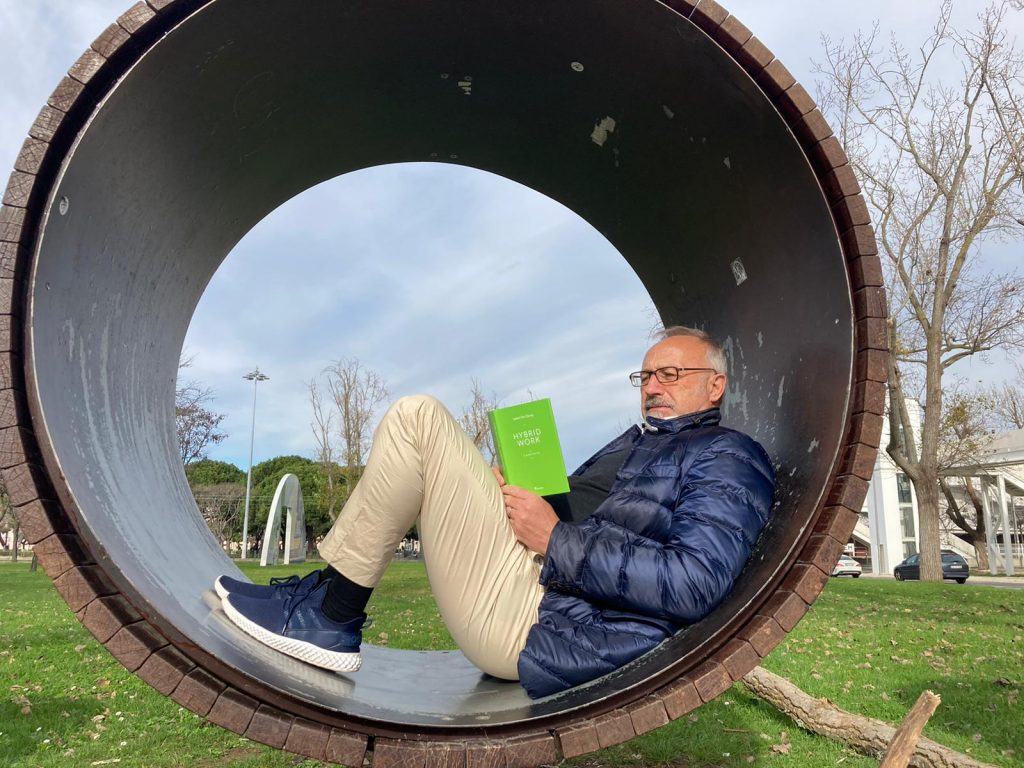When I set out on my Presidential journey last January it was in the expectation I would get to meet a cross section of the membership at the annual conference as well as regional events. As it turned out ‘my year’ was almost exclusively virtual. The upside: I got to meet a number of international members and speak at international events. The downside: I didn’t get to visit other parts of the UK to see first hand the important role libraries play in the community.
I’d spent much of the previous 3 years promoting the idea of an independent accreditation for the Knowledge & Information Management professional, so I had high hopes that KM Chartership / Fellowship along with the recently released ISO KM Standards might come to prominence during my term of office.
As the global community was attempting to get to grips with restrictions caused by and the aftermath of the pandemic I was intrigued: What will the new normal look like?; will work be a hybrid of virtual and in person?; will it revert to being location specific?; and will the communal spirit endure? I hypothesised that in 2021,
I am convinced that those who succeed will be agile, collaborative, tenacious, excellent facilitators and a trusted resource, good at curation.
How accurate was this hypothesis?
Presidential Musings
One of the initatives I introduced was “Presidential Musings. I invited a variety of prominent industry figures to examine some of the questions I’d raised. These were captured in CILIP’s flagship publication Information Professional and can be accessed below.
We started with the ISO KM Standard and it’s likely take up. We then looked at the rapid growth in digital publishing and it’s potential impact on Libraries. Following on, we examined the impact of onboarding new employees in a virtual world. We looked back to look forward in assessing the role of Libraries over 100 years. We tracked the journey of a senior University Librarian who changed roles and continents. We debated (and captured thoughts on) distributed working and its impact on urban centres. We rounded off with a look at the role Knowledge & Information Professionals played in helping to run a successful Olympics during the pandemic.
As I look back at each article I am extremely grateful to everyone who gave of their time and knowledge. I hope you find them as enjoyable to read as I did to research and write.

Bibliography
- To certify or not – the value of an ISO standard? with Patricia Eng and Carol Aldridge
- Has Covid 19 hastened the demise of print publishing and libraries? with James Macfarlane
- Onboarding in a virtual world: The myth of the lonely employee with Martin White and James Robertson
- Changing Continents: Durham to Dunedin with Mike Wall
- A role that is part counsellor, social worker, listening ear, facilitator, events planner and friend…with Kate Thompson
- Shift happens – the future office / library in a connected world with Luis Suarez, Neil Usher and Rob Cottrill
- Tokyo 2020: when a sprint turned into a marathon with Chris Payne
Acknowledgements (in alphabetical order)
Carol Aldridge, Rob Cottrill, Patricia Eng, James Macfarlane, Chris Payne, James Robertson, Luis Suarez, Kate Thompson and Neil Usher

